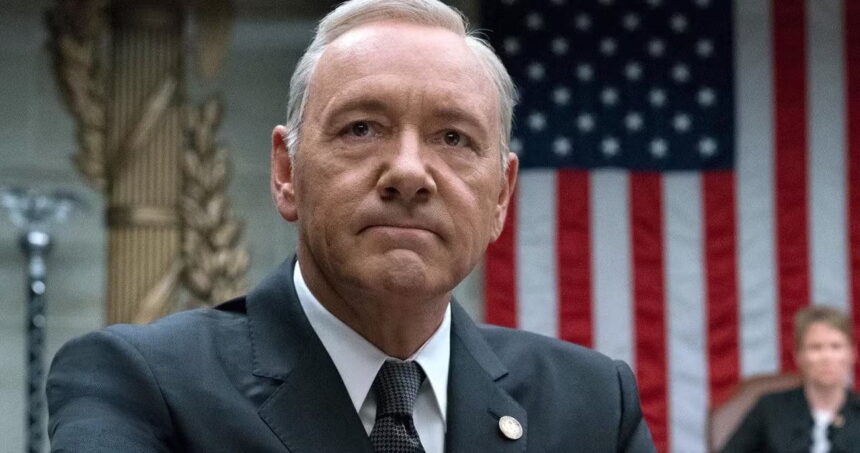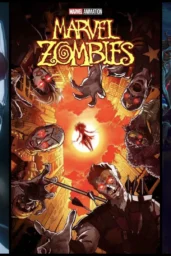The first time I heard about Gore , it sounded like the kind of ambitious biopic Netflix was built for—a deep dive into the life of literary titan Gore Vidal, starring Kevin Spacey in one of his signature roles as a sharp-tongued intellectual. Directed by Michael Hoffman (The Last Station ), with a reported budget of $40 million, this wasn't just another prestige project; it was meant to be an awards-season contender. Until it wasn't.
Last month, whispers from indie distribution circles confirmed what many feared: Netflix has no plans to release Gore . Ever. The reason? According to producer Andy Paterson, who spoke to IndieWire, the streamer cited a tax write-off—the same justification Warner Bros. infamously used to bury Batgirl . But here's the kicker: they also refuse to sell it off to someone else. So, the film sits—finished, unseen, and untouchable—like a ghost haunting Hollywood's collective conscience.
A Story Frozen in Time
To understand why Gore is stuck in limbo, we need to rewind to 2017. Back then, the movie had momentum. Shooting wrapped, post-production was underway, and trailers were being cut specifically for its awards campaign. In fact, Ted Sarandos, Netflix's CEO, reportedly screened the completed film in his private theater, showing it off as proof of the platform's commitment to high-quality cinema.
But then came the allegations against Kevin Spacey. The first wave hit right as Gore entered post-production, pulling the rug out from under the entire project. Overnight, Spacey went from Oscar-winning icon to persona non grata. And while Netflix quickly distanced itself from him—killing House of Cards mid-season and scrubbing Spacey's name from their promotional materials—they didn't abandon all ties. His older films still stream on the platform, along with five seasons of House of Cards . Yet Gore , a standalone piece of art unconnected to those controversies, remains buried.
Paterson calls this hypocrisy baffling. “For a company that purports to be all about freedom of artistic expression,” he told IndieWire, “to have my film ‘buried'… it boggles my mind.” He's right—it does. Because if you strip away the Spacey factor, what's left is a story worth telling. Gore Vidal was a provocateur, a cultural critic, and a voice of dissent during some of America's most tumultuous decades. Who better than Spacey, with his razor-sharp delivery and knack for playing morally ambiguous figures, to embody that spirit?
The Cast and Crew Left Hanging
Imagine spending years working on something only to see it vanish. That's the reality for everyone involved in Gore . Hoffman hasn't directed much since, and key crew members are caught in professional purgatory, unable to showcase their work. For actors like Eve Best (The King's Speech ) and Jack Huston (Boardwalk Empire ), who co-starred alongside Spacey, the film represents months of effort now locked away forever.
And let's not forget the financial toll. At $40 million, Gore wasn't cheap. It's easy to dismiss that figure when you're talking about a global streaming giant, but think about the ripple effect. Every dollar spent on a shelved project is a dollar not reinvested in new opportunities—for filmmakers, writers, technicians. When corporations decide art isn't worth releasing because of accounting loopholes, creativity suffers collateral damage.
Symbolism of the Shelves
What makes Gore 's fate particularly galling is how perfectly it mirrors larger industry trends. We live in an era where corporate decisions often override creative ones. Studios greenlight projects based on algorithms rather than passion. They dump unfinished gems (Justice League ) or completed works (Batgirl ) without blinking. And now, with Gore , we see yet another example of art sacrificed at the altar of balance sheets.
It's ironic, isn't it? Gore Vidal himself might've written a scathing essay about this very phenomenon—how capitalism devours even the things it claims to champion. Here's a man whose novels dissected power structures, corruption, and moral decay. What would he say about a $40-million biopic dedicated to his legacy being erased due to tax deductions? Probably something witty, cutting, and utterly devastating.
Is There Hope for Resurrection?
So, where does Gore go from here? Technically, nowhere. Legally, Netflix owns the rights, and they've made it clear they won't budge. Morally, though, there's room for debate. Shouldn't artists have the right to share their work, especially when it's already been paid for? Isn't there value in letting audiences decide whether a film succeeds or fails?
History offers precedents, albeit rare ones. Orson Welles' The Other Side of the Wind languished for decades before Netflix stepped in to finish and release it. Could Gore follow a similar path? Unlikely, given the circumstances. Still, stranger things have happened in Tinseltown.
Final Thoughts
As I sit here writing this, I can't help but wonder: Is Gore doomed to remain a footnote in Hollywood history? Or will future generations uncover it, like archaeologists sifting through ruins, piecing together fragments of what could've been? Either way, its burial feels less like a business decision and more like a cultural loss.
Maybe someday, someone will leak it online—or maybe Netflix will change its tune. Until then, all we're left with is speculation. And isn't that just the saddest part of all?











